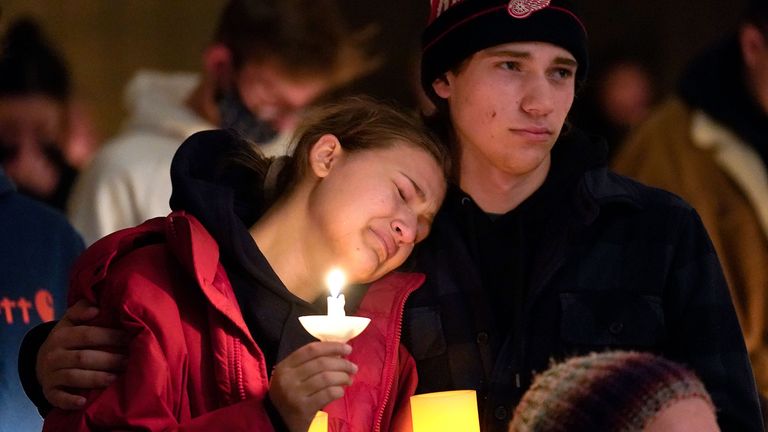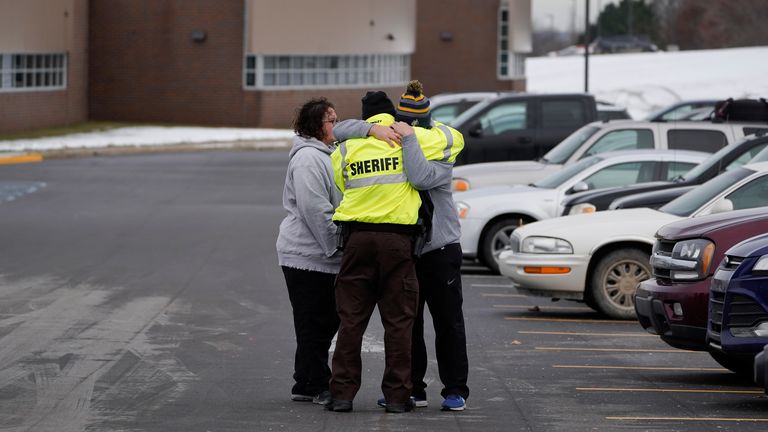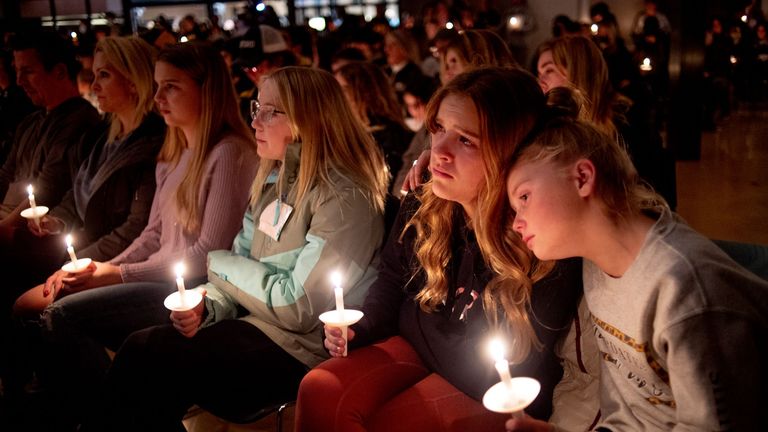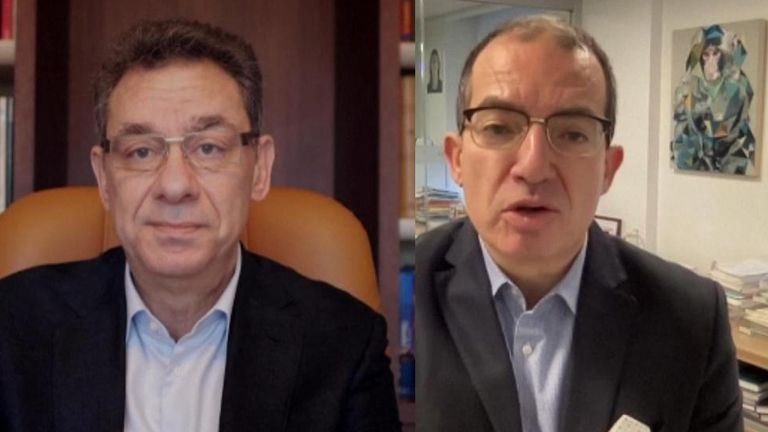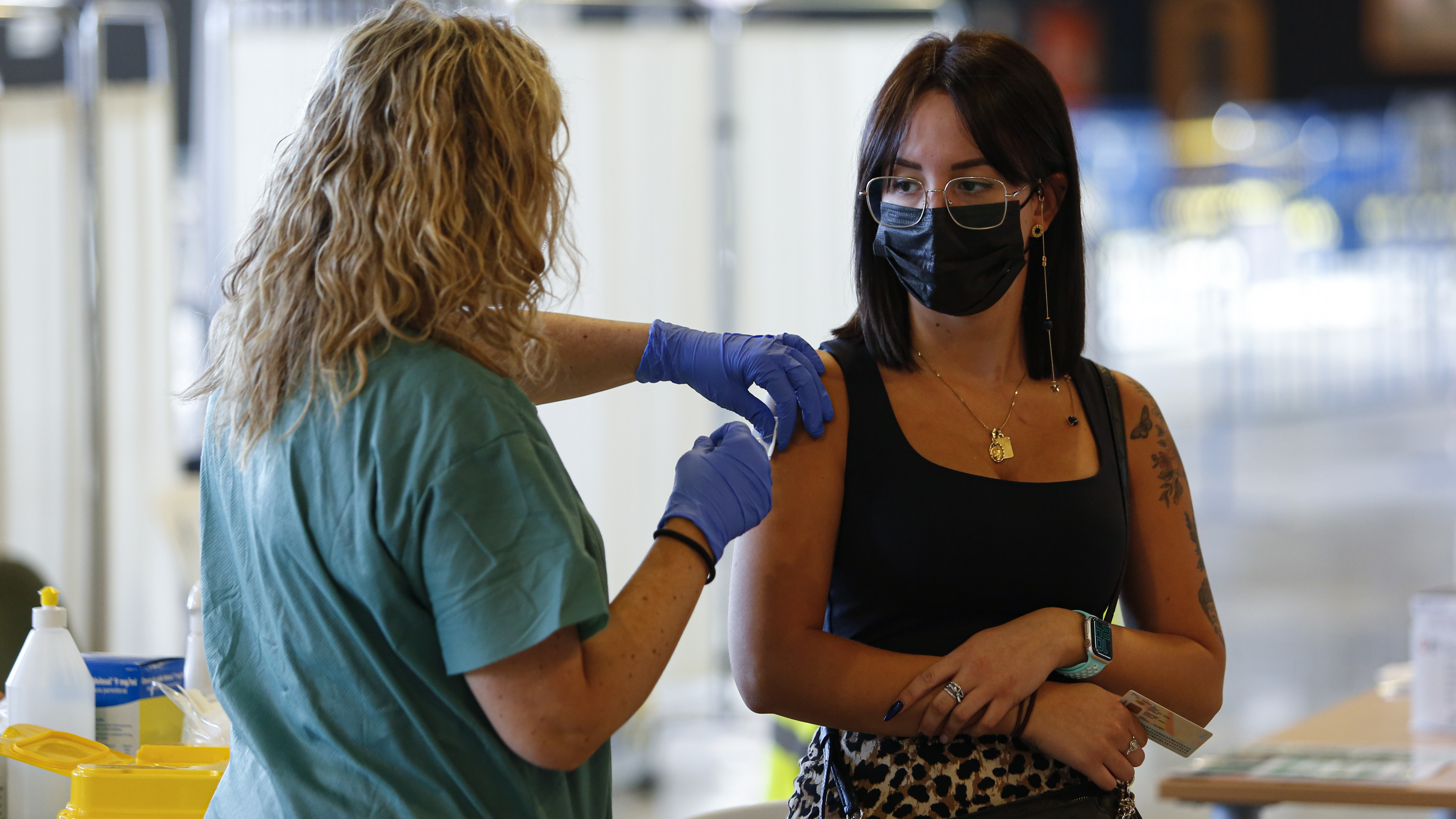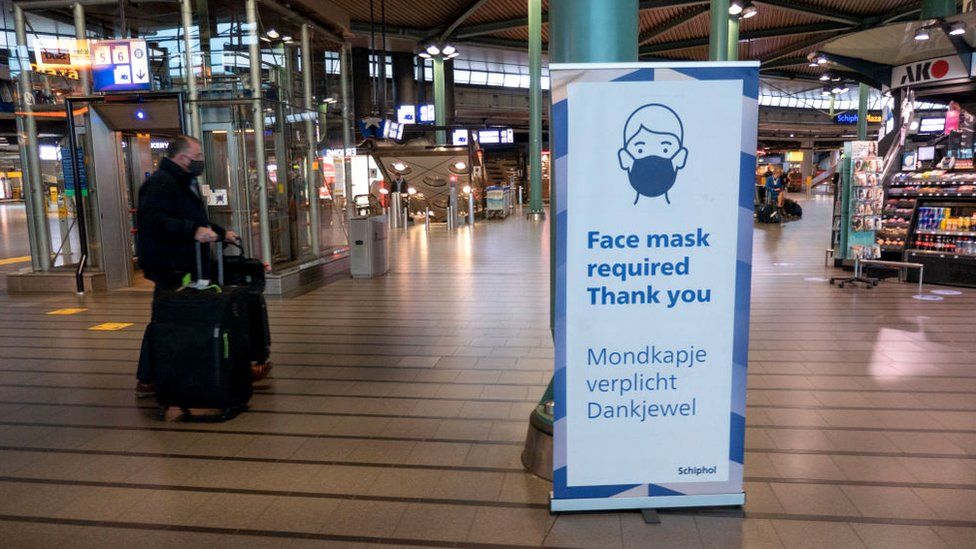A fourth student has died following the school shooting in Michigan.
Three other students were killed when a 15-year-old boy opened fire at his high school in Oxford Township on Tuesday, while eight others - including a teacher - were injured.
The Oakland County Sheriff's Office identified the latest fatality as teenager Justin Shilling.
The 17-year-old died at around 10am this morning at McLaren Oakland Hospital in Pontiac, Michigan, the sheriff's office confirmed.
The suspect remains in custody.
Investigators are still trying to determine a motive for the shooting at Oxford High School, located in a community of about 22,000 people, Oakland County Sheriff Michael Bouchard said.
"The person that's got the most insight and the motive is not talking," he said at a news conference.
He added that the student in custody had no previous run-ins with his department and he was not aware of any disciplinary history.
Deputies rushed to the school on Tuesday lunchtime as more than 100 calls flooded 911 dispatchers with reports of a shooter.
Footage captured by a student showed people huddled under desks as the attacker roamed the halls pretending to be a police officer.
The campus was placed on lockdown during the attack, with some children sheltering in locked classrooms.
They were later taken to a nearby grocery store to be picked up by their parents.
Isabel Flores, a 15-year-old, told WJBK-TV that she and other students heard gunshots and saw another student bleeding from the face. They then ran from the area through the rear of the school, she said.
The suspect was arrested in a hallway within minutes of deputies arriving. He put his hands in the air as they approached, Mr Bouchard said.
He added that the gun used in the attack was a semi-automatic 9mm Sig Sauer bought by the boy's father and was carrying seven more rounds of ammunition in it when he surrendered to police.
The student, who has not been named, had been posting pictures of the gun and practising shooting, the sheriff said.
Authorities were made aware of posts on social media that said there had been threats of a shooting at the roughly 1,700-student school, but Mr Bouchard said they didn't know about the rumours until after the attack.
He stressed how crucial it is for such information to be sent to authorities, while also cautioning against spreading social media rumours before a full investigation.
The other three students killed in the shooting have been named 16-year-old Tate Myre, 14-year-old Hana St. Juliana and 17-year-old Madisyn Baldwin.
Mr Myre died in a patrol car as a deputy tried to get him to an emergency room.
A teacher who received a graze wound to the shoulder was taken to hospital but has now left.
Seven more students ranging from 14 to 17 remained in hospital through the night with gunshot wounds, Mr Bouchard said.
Undersheriff Mike McCabe said the suspect's parents have advised their son not to talk to investigators and police are required to seek permission from a juvenile's parents or guardian to speak with them, he added.
In a statement, Oakland County prosecutor Karen McDonald said her office expects to issue charges quickly and that an update would be given on Wednesday.
https://news.google.com/__i/rss/rd/articles/CBMiamh0dHBzOi8vbmV3cy5za3kuY29tL3N0b3J5L21pY2hpZ2FuLXNob290aW5nLWZvdXJ0aC1zdHVkZW50LWRpZXMtaW4tb3hmb3JkLWhpZ2gtc2Nob29sLWd1bi1hdHRhY2stMTI0ODM5OTDSAQA?oc=5
2021-12-01 17:45:36Z
1196817749

